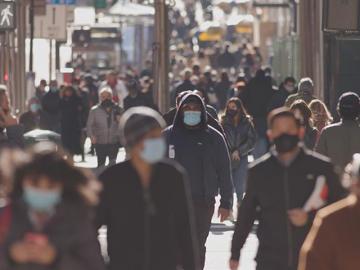FRA’s report: Protecting civic space in the EU

Civil society organisations across the EU provide services, engage in communities, raise awareness, advocate on behalf of others and hold authorities to account. But they face threats, attacks, funding cuts and disproportionate restrictions. These are just some of the challengeshuman rights civil society organisations face in some parts of the EU, and the COVID-19 pandemic has worsened their working conditions, highlighting a new report from the EU Agency for Fundamental Rights (FRA). FRA calls on policymakers to foster a more conducive working environment for civil society, helping to realise all human rights for all.
FRA’s report ‘Protecting civic space in the EU’ sheds light on the challenges civil society faces across the EU, including worse conditions, threats and attacks, limited freedom, lack of funding, and limited involvement.
But the report also highlights positive developments and promising practices. These include authorities publicly acknowledging the importance of civil society work, fully involving civil society in policy development or reducing bureaucracy for NGO registration.
Building on these positive examples, FRA encourages the EU and EU countries to:
-
Monitor developments: keep track of civil society challenges and find ways to respond rapidly to counter restrictions;
-
Safeguard rights: ensure the EU and national laws strengthen the right to freedom of expression, assembly and association;
-
Provide funding: address civil society needs in EU funding and remove funding obstacles;
-
Encourage dialogue: support an open, transparent and regular dialogue between policymakers and civil society at the EU, national and local levels;
-
Protect civil society: ensure effective protection against attacks and administrative harassment.
This report is based on evidence collected by the Agency’s research network in 2020, two online consultations with civil society organisations and desk research. It builds on FRA’s 2018 report on civil society challenges.

